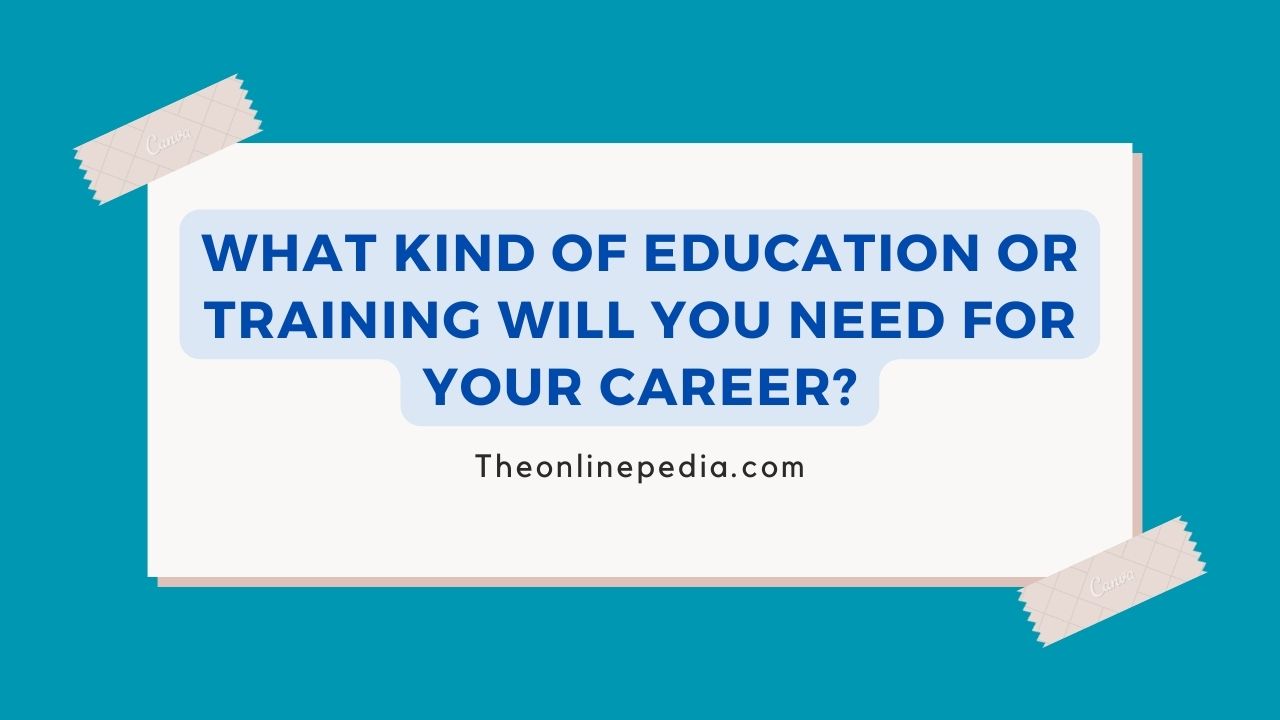
What Kind of Education or Training Will You Need in Order to Pursue Your Chosen Career Path? Discover the essential education and training needed to excel in your chosen career path. Explore expert insights and FAQs to guide your journey.
Embarking on a fulfilling career journey requires careful planning, dedication, and the right education and training. Whether you’re a recent graduate or contemplating a career change, understanding the educational prerequisites and training options for your chosen path is crucial. In this comprehensive guide, we’ll delve into various career domains and provide insights into the education and training needed to succeed.
What Kind of Education or Training Will You Need in Order to Pursue Your Chosen Career Path?
Different careers demand different levels of education and training. The path you choose will determine the qualifications you need to acquire. Let’s explore some popular career paths and the associated educational requirements:
Medicine and Healthcare
For those aspiring to become doctors, nurses, or other healthcare professionals, a rigorous educational journey awaits.
A Bachelor’s degree in a related field is typically the starting point. Subsequently, medical school or specialized training programs are essential. These programs equip you with the knowledge and skills needed to excel in a fast-paced and dynamic industry. Clinical rotations and internships further enhance your practical expertise.
Information Technology (IT)
A Bachelor’s degree in Computer Science, Information Technology, or a related field provides a strong foundation.
However, IT professionals often benefit from certifications such as CompTIA, Cisco, or Microsoft. These certifications validate your expertise in specific areas like network administration, cybersecurity, or programming.
Business and Finance
A career in business or finance typically requires a Bachelor’s degree in Business Administration, Finance, Economics, or a related discipline.
Advanced roles may necessitate a Master’s degree, such as an MBA (Master of Business Administration). Additionally, certifications like Chartered Financial Analyst (CFA) or Certified Public Accountant (CPA) can significantly enhance your credibility in the field.
Education and Teaching
Aspiring educators usually pursue a Bachelor’s degree in Education or a subject-specific field. To become a licensed teacher, completing a teacher preparation program and obtaining state licensure is crucial. Continuing education and professional development are vital for staying up-to-date with modern teaching methods and curriculum changes.
Arts and Design
Creative careers like graphic design, fine arts, or interior design often value artistic talent and practical skills. A Bachelor’s degree in Fine Arts or Design is valuable, but a strong portfolio showcasing your work can be equally important. Taking workshops, attending art exhibitions, and embracing self-directed learning can help you refine your craft.
Also Read:
How to Enhance Online Learning in the Child?
Online Learning as a Tool of Success in the Digital Age
Short Essay on Teachers Day in English
How to Educate Your Child At Home By Online Learning?
Engineering
Engineering careers demand analytical thinking and problem-solving abilities. A Bachelor’s degree in Engineering, followed by obtaining Professional Engineer (PE) licensure, opens doors to various engineering disciplines.
Continuing education and specialization through advanced degrees or certifications further distinguish you in this competitive field.
Trades and Vocational Careers
Vocational careers, such as plumbing, electrician work, or welding, often require hands-on training and apprenticeships. Trade schools and community colleges offer specialized programs that combine classroom learning with practical experience. Becoming certified or licensed is crucial to ensure safety and competency in these trades.
Frequently Asked Questions (FAQs)
Is a college degree necessary for all career paths?
While a college degree is beneficial for many careers, some paths, like trades or creative fields, prioritize practical skills and experience. Research your desired career to determine the best educational route.
How can certifications enhance my career prospects?
Certifications demonstrate your expertise in specific areas, making you a more competitive candidate. They can lead to higher earning potential and increased job opportunities.
Can I switch careers without obtaining a new degree?
Yes, a career switch is possible without pursuing a new degree. Your transferable skills, coupled with targeted certifications or training, can make you a desirable candidate in a new field.
What role does networking play in career advancement?
Networking is invaluable in today’s job market. Building professional relationships can lead to mentorship, job referrals, and access to hidden job opportunities.
How do online courses contribute to my education?
Online courses offer flexibility and convenience, allowing you to learn at your own pace. They can provide new skills or enhance existing ones, making you more versatile in your career.
Is continuous learning necessary after securing a job?
Yes, continuous learning ensures you stay current in your field. Industries evolve, and staying updated with the latest trends and technologies can help you maintain a competitive edge.
Conclusion
Choosing the right education and training for your career path is a pivotal decision that shapes your professional journey. Whether you’re pursuing a degree, certifications, or hands-on experience, each step contributes to your growth and success. By understanding the requirements of your chosen field, you can confidently take the necessary steps toward a rewarding and fulfilling career.



